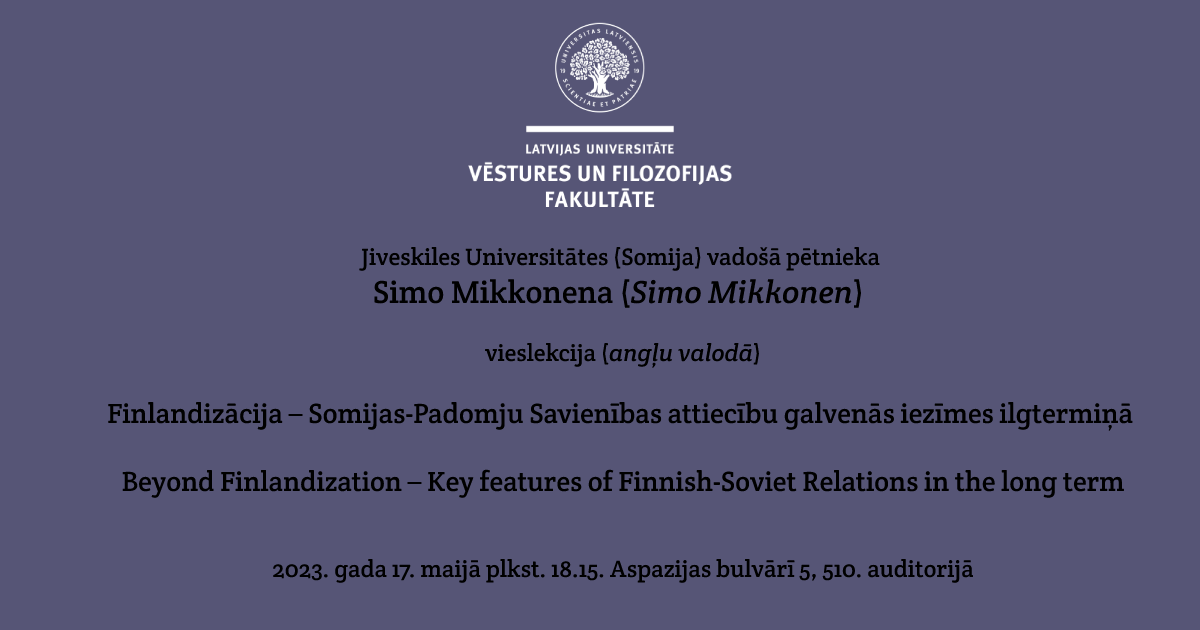
A single concept – Finlandization has dominated discussion about Finnish domestic and foreign policies after the Second World War. Indeed, Finnish relationship with the Soviet Union was a complex one. Although Finland remained a capitalist democracy, it had closer relation to the Soviet Union than any other western country. This presentation will offer an overview of these relations and their intricacies.
After losing twice to the Soviet Union during the WWII, and suffering significant territorial losses, Finland was forced to exercise cautiousness in its foreign policy. Over the following decades, this approach came to be called Finlandization. Even so, Finland managed to retain its ties to the west. Together with foreign political Finlandization, worse kind of Finlandization emerged along the 1970s. Self-censorship of the media, politicians’ increasing tendency to acquire acceptance from Soviet officials and increasing business ties increased Finnish dependency of the Soviet Union. However, good relations between Finland and the Soviet Union made it possible to many Soviet citizens, artists in particular, to spend prolonged periods in Finland. For many of them, Finland served as the gateway to the West.
Simo Mikkonen is Senior Research Fellow at the Dpt. of History and Ethnology, University of Jyväskylä. He is specialized in 20th Century Eastern European history, cultural diplomacy of the Cold War era, and Russian émigrés. He has published extensively on cultural, international and transnational East-West connections, particularly from the Soviet perspective, including edited volumes Beyond the Curtain: Entangled Histories of the Cold War-Era Europe (Berghahn 2015), Music, Art, and Diplomacy: East-West Cultural Interactions and the Cold War (Routledge 2016), as well as Entangled East and West. Cultural Diplomacy and Artistic Interaction during the Cold War (De Gruyter 2018). He has also co-authored a monograph Networking the Russian Diaspora: Russian Musicians and Musical Activities in Interwar Shanghai (Hawaii UP 2019).

 Academic Centre
Academic Centre